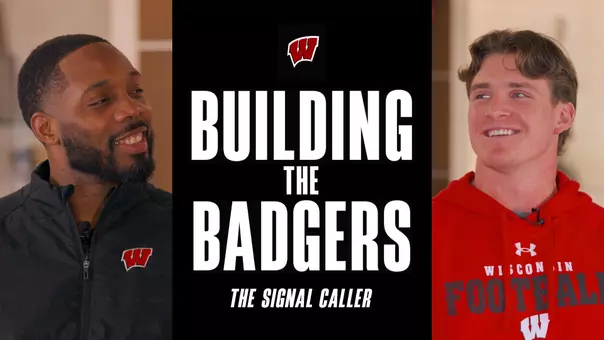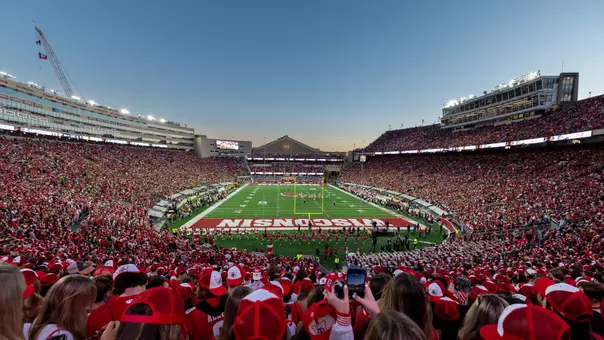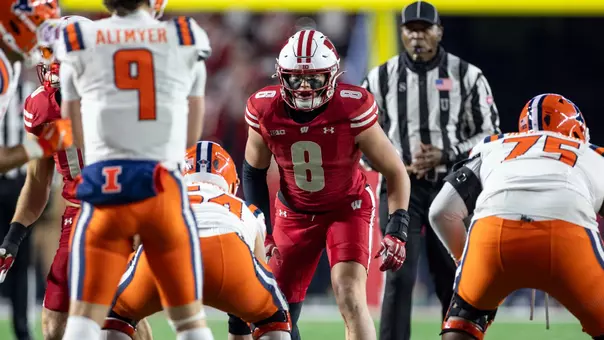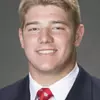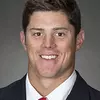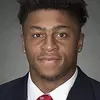Lucas at Large: Ferguson’s standing out thanks to focus on craft
December 19, 2018 | Football, Mike Lucas, Varsity Magazine
Redshirt freshman tight end has earned considerable playing time in debut season
 |
||
|
BY MIKE LUCAS
UWBadgers.com Senior Writer
MADISON, Wis. — A year ago, Jake Ferguson was not in Miami's scouting report on Wisconsin. But he was in Wisconsin's scouting report on Miami. Ferguson, you see, redshirted as a freshman and didn't play in the Orange Bowl. But he did play a role on the Badger scout team leading up to the game.
With his size, speed and ball skills, Ferguson was perfectly suited to not only simulate Hurricanes tight end Michael Irvin II (6-foot-3, 240 pounds) for the No. 1 UW defense in practice, but he also took on the route-running tendencies and physical characteristics of wide receiver Lawrence Cager (6-5, 200).
It was not the first time that Ferguson, a tight end/H-back, was utilized as a "big" wide-out with the scouts. Before the Badgers played at Indiana, he drew the assignment of impersonating the moves of the Hoosiers leading receiver, Simmie Cobbs (6-3, 220), who finished the season with 72 catches.
In 2017, Cobbs was a consensus first-team All-Big Ten selection. Ferguson has the future look of one. After catching 34 passes for 441 yards and four touchdowns, the second-most receptions and yardage on the offense, he earned honorable mention recognition from both the coaches and media.
In the process, the 6-5, 239-pound Ferguson has begun to carve out his own niche and identity. Separate from the tight end (Troy Fumagalli) who mentored him. Separate from the older brother (Joe) who preceded him. Separate from the granddad (Barry Alvarez) who raised the bar for him.
Playing his own game, he found, was far more enjoyable than playing someone else's.
"It's definitely different from the scout team," said Ferguson, the former Madison Memorial High School stalwart. "Going into training camp, I was used to that practice setting. But the game is almost a completely different game. It's a lot faster. Definitely the crowd has an impact.
"But once you get comfortable, it does turn into that practice. I now value practice a lot more than I did in the past — just being able to focus on the craft — and then taking it into games and being able to use it. Looking at film, you can see what I do in practice has eventually turned up in games."

In his college debut, Ferguson caught four passes — the same number that he had in back-to-back games against Iowa and Nebraska to open the Big Ten season. But he got a reality check at Michigan when the Wolverines covered him with their fastest linebacker, Khaleke Hudson.
"I felt like he was more of a safety, size-wise — he was definitely faster than the other linebackers I had played against," said Ferguson, who was held to two catches. "I came in there with a big head, honestly. I didn't help Horni (Alex Hornibrook) enough, not nearly as much as I should have."
It was part of Ferguson's orientation to defenses countering some patterns with coverages designed to take him out of his comfort zone and the offense. If he was having success running 10-yard outs, as he was early in the season, he'd draw outside leverage, neutralizing that particular route.
In countering the counters, the game within the game, it helped that he had a feel for what he was looking at — whether man or zone coverage. "I think that's one of my stronger points," he said. "I played quarterback as a youth football player and my dad always had me reading coverage."
It didn't hurt, either, that Ferguson played offense and defense as a prep.
"He played all over the place when he was younger," noted tight ends coach Mickey Turner. "All those things go into knowing how the game moves, how a defender is going to try and leverage you, and what their adjustments are going to be when you beat them the first time.
"We have to get him routes that are going both ways … in and out … vertical and stops … doing it from different formations, shifts and motions. We're giving them a different picture while he's still running something he knows … it's not something they can key on pre-snap."
"Jake has always been a competitive route-runner for the lack of a better term. He'll go up and get the football or he'll find that burst of speed when he needs it. But it's the details of when the quarterback is going to get his eyes on you and what the window is that you've got to be in.
"Those are all things he had to learn."
It's Bowl Season 👀🔜✈️🏙🏈🏆 2018 @PinstripeBowl Wisconsin vs. Miami Dec. 27 at Yankee Stadium #OnWisconsin // #Badgers
— Wisconsin Football (@BadgerFB) December 14, 2018
Turner has enjoyed working with Ferguson who brings a little personality to what he's doing.
"He gets a kick out of getting better," Turner emphasized with a smile. "He looks at each little piece (of the playbook) as something he can take ownership of. And that's what makes it fun for me. I know he's invested as much or more so than I am."
Of Ferguson's 34 catches, 27 have gone for a first down or a touchdown. He's averaging nearly 14 yards per reception on the 16 passes (23 targets) that he has caught on third or fourth down. "As much growth as he has made to this point," Turner said, "I see it continuing moving forward."
Like his teammates, Ferguson has played through injuries. He was banged up against Northwestern and dealt with back spasms at Penn State. "I could play," said Ferguson, who had four catches for 24 yards in those games combined. "But I definitely didn't play the way I wanted."
In the triple-overtime victory at Purdue, he had only a couple of grabs. But one was critical. It came on second-and-8 in the first OT and it covered 11 yards. Jonathan Taylor scored on the next play. In the regular-season finale against Minnesota, he had a career-high five catches and a touchdown.
That loss still stings Ferguson.
"We've got that chip on our shoulder," he said, "looking into that empty trophy case."
Because of last year's loss to Wisconsin in the Orange Bowl, it's reasonable to assume that Miami will have an axe to grind in the Pinstripe Bowl at Yankee Stadium, a most unique battleground.
"I know there's a lot of tradition there," said Ferguson, who was a pitcher in youth baseball and through his freshman year of high school and claimed, "I threw a deadly 12-6 curveball. It was nasty."
Bowl season with the football family #FridayFeeling // #OnWisconsin
— Wisconsin Football (@BadgerFB) December 14, 2018
Without prodding, Ferguson then volunteered a flashback from old Yankee Stadium.
"Colts-Giants," he said. "Ameche won that game in overtime."
Sure enough, 60 years ago — what was billed as the "Greatest Game Ever Played" — the Baltimore Colts won the NFL championship over the New York Giants when Ameche, the Kenosha, Wisconsin native, and the 1954 Heisman Trophy winner with the Badgers, scored in sudden death overtime.
How in the world would Ferguson know about that piece of history?
"Gramps was talking to me about it over dinner," he said, grinning. "Pretty cool."

